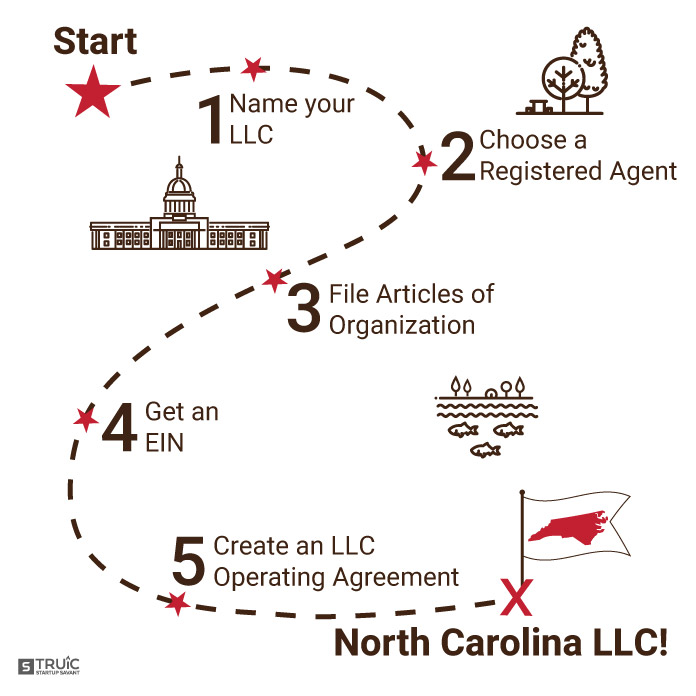
An operating agreement is not required by the LLC Act in North Carolina. However, it is strongly advisable to have one, whether it's a single-member LLC or a multi-member LLC. This document has internal and external uses that the members will benefit from over time.
What is an operating agreement?
An Operating Agreement is an internal document that does not need to be filed with the state, except in the case of single-member LLCs. It's an agreement between members of an LLC that spells out who the members are and what percentage of the LLC each one owns, and how the business will be managed operationally and financially. It also explains how taxes will be paid, and how profits and losses will be shared among the members.
For a simple business, a generic Operating Agreement is generally sufficient. If a business requires complex ownership or industry-specific management, or has many members or investors, it's better to get help from a lawyer who can handle the complexity.
External uses of the Operating Agreement
Though an Operating Agreement is an internal document, it is also useful outside the company. It may be requested by a lender when the company seeks financing, by a title company when the LLC purchases real estate or by a tax official or an accountant when financial advice is sought. A lawyer might also ask for it when legal advice is sought and potential investors/members may want to look at it before putting their money into the business. Even a court will ask for the agreement if the LLC is party to a legal action, to prove that the company is well organized to handle any issues that may arise in the course of doing business.
Amendments
Because it is an internal document, the members can amend the Operating Agreement as the business grows. Whenever minor changes are made, such as change of address of a member, a new version of the document must be saved and signed by all members. At any point, the most current version is in use but older versions can be consulted when necessary.
Whenever complex changes are made, such as the purchase of one member's interest by another, or getting an investor, it is advisable to consult an attorney for help. Again, all the members must sign the latest version and the older versions must be kept on file.
Does a single-member LLC need an Operating Agreement?
It may come as a surprise that a single-member LLC requires an Operating Agreement. Protection of the member from liability of the LLC does not come automatically upon registration of an LLC in North Carolina. The single owner has to create an operating agreement to specifically spell out the separation of the business from the owner. This must be filed with the state and then implemented in order for the member to acquire protection over personal assets and financial accounts.
If separation of the LLC from the member is not specified in an operating agreement, the single member is held liable for the business' debts and obligations. This is so important that the single member must prepare the agreement correctly. TRUiC has guidelines and information on its websites for people who want to create the operating agreement properly for their North Carolina LLC. Learn more... Better still, the member can consult an attorney to get the right legal advice.
Never downplay the importance of the Operating Agreement
It is tempting to work without an Operating Agreement simply because it is not required by law. However, when many people co-own a business, disputes naturally arise, and the operating agreement is consulted to resolve the disputes. Also, when the document is filed with the state, it provides much-needed protection from liability for a single-member LLC. It can be concluded that an operating agreement is needed to form an LLC in North Carolina.
This article is copyrighted by Travelers Today, the travel news leader



